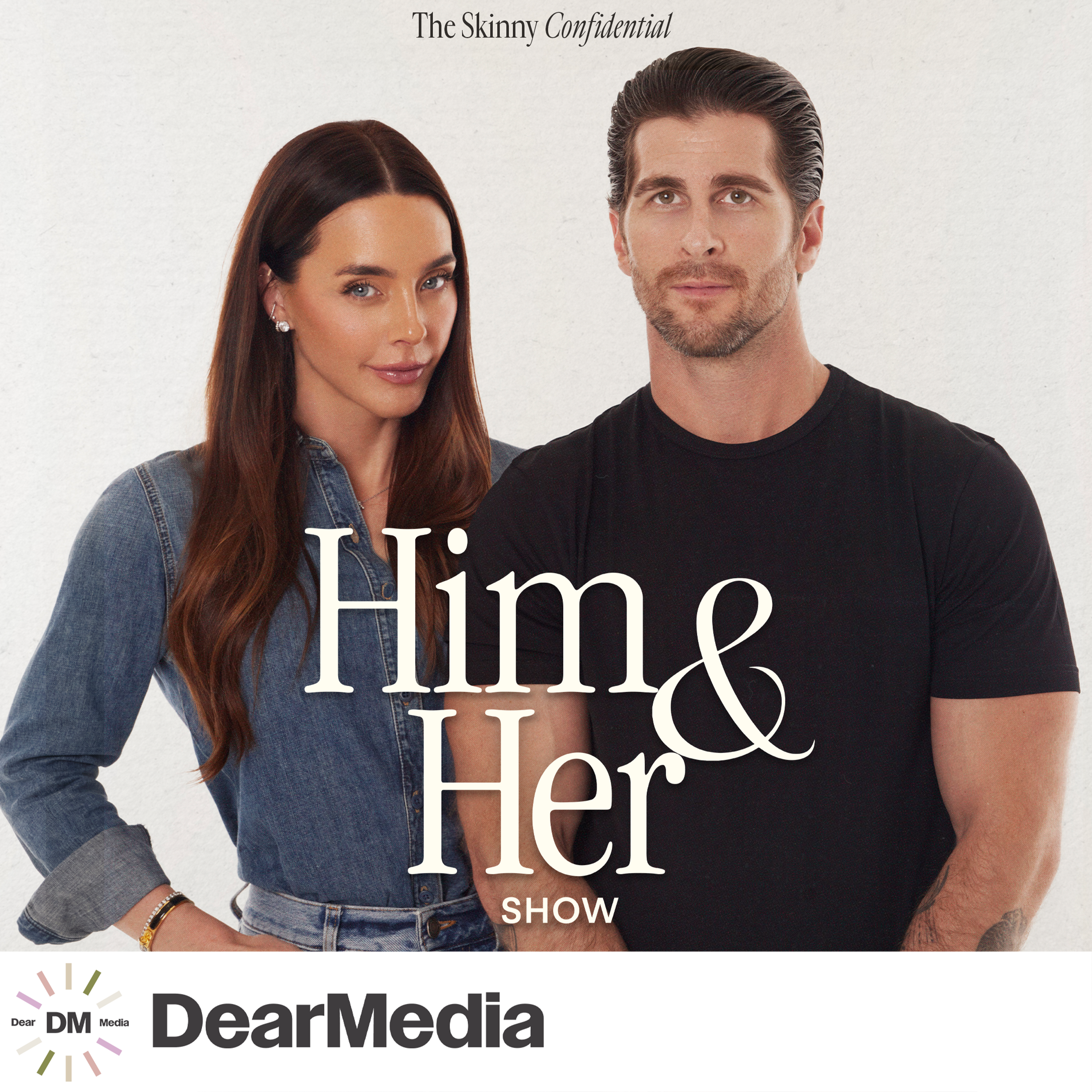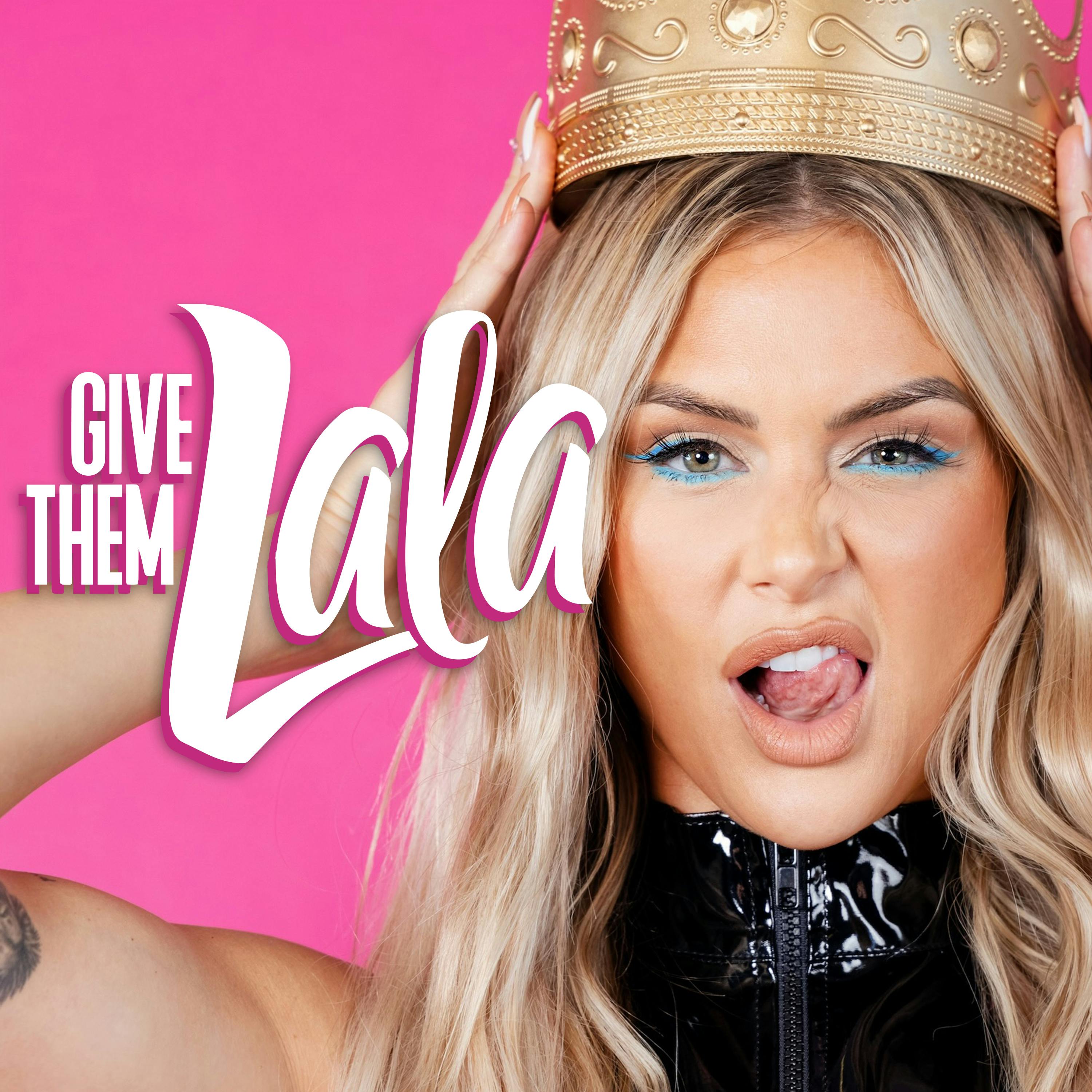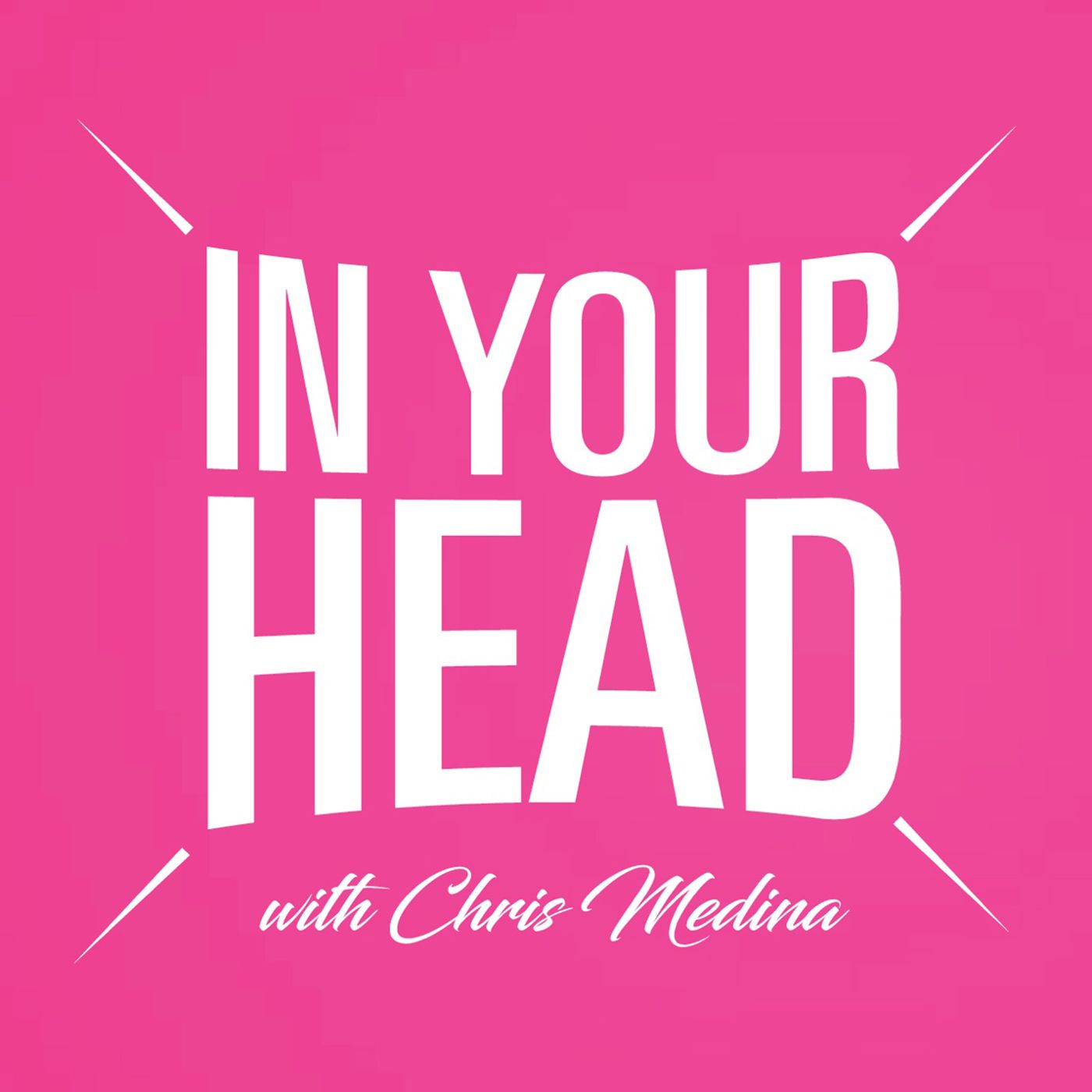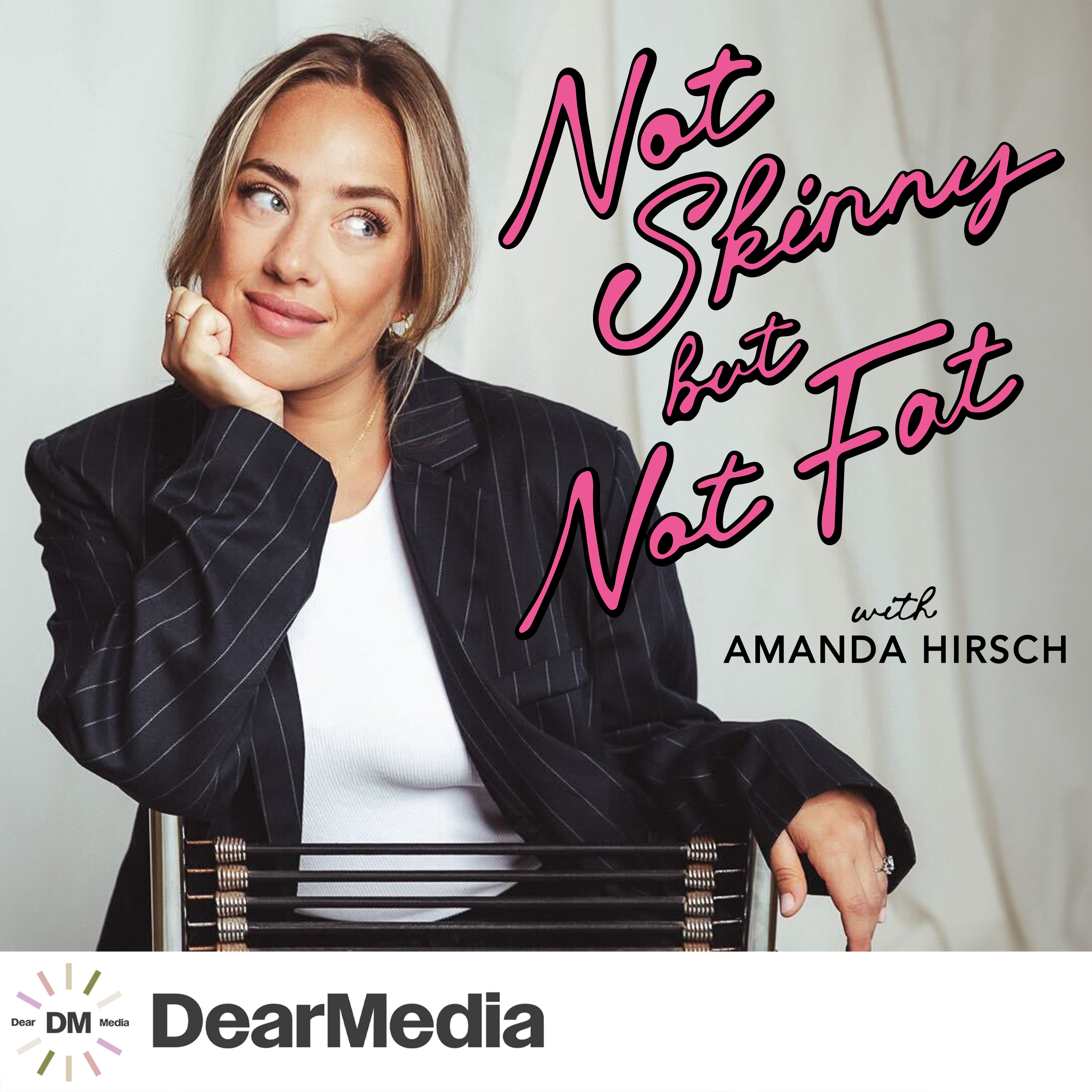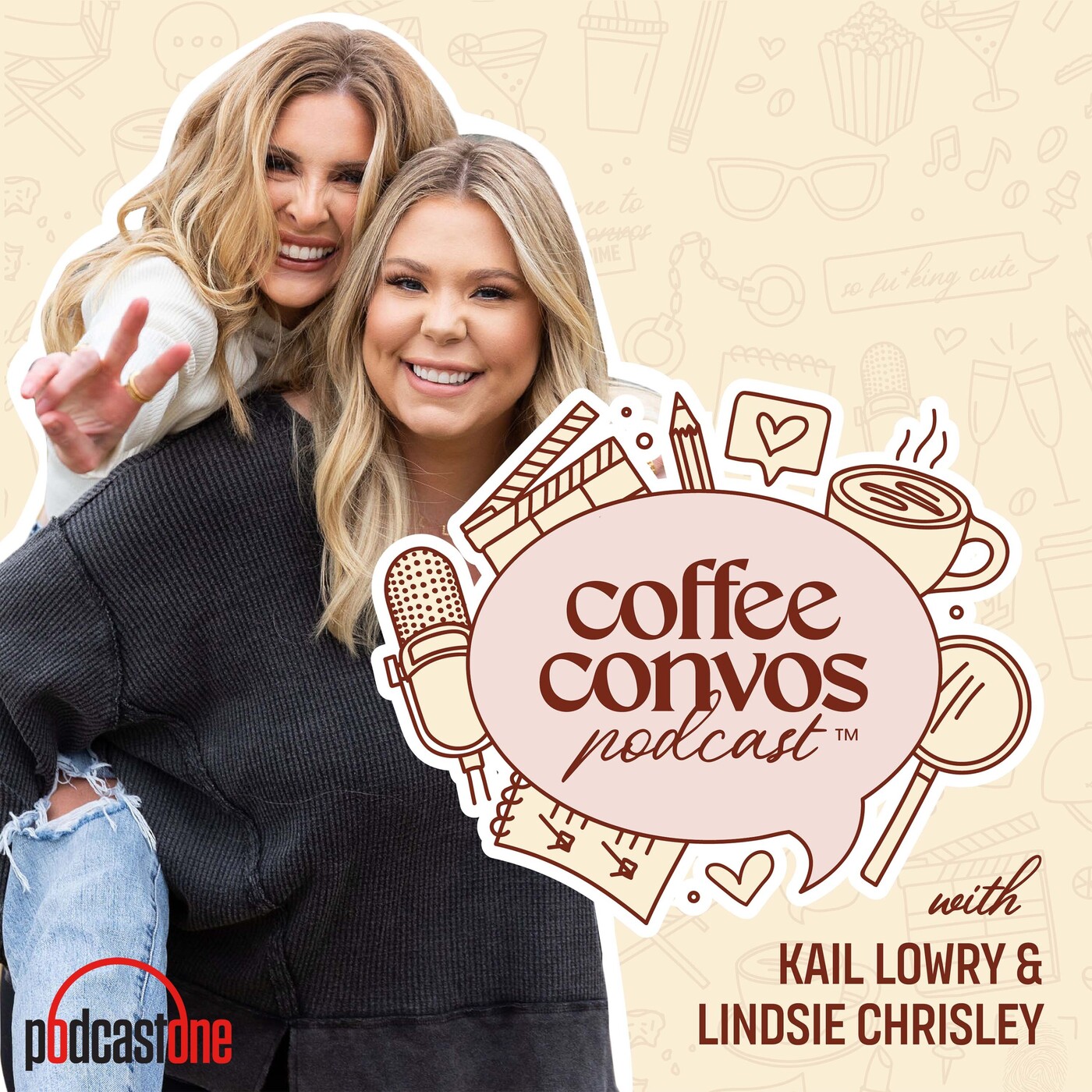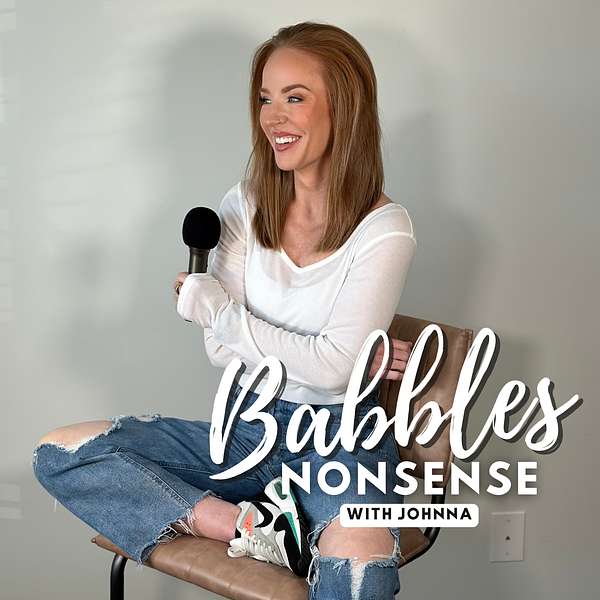
Babbles Nonsense
Welcome to my verbal diary where I want to discuss any and all things that is essentially on my mind or have wondered about. Sometimes I will be solo and then other times I will have some amazing guests to bring all different perspectives in life. The ultimate goal is to hopefully bring some joy, laughter, inspiration, education, and just maybe a little bit of entertainment. Don't forget to like, rate, and share the podcast with a friend!
Babbles Nonsense
The Caloric Truth: When Less Isn’t More
#159: Picture this: You're diligently following a new fitness regimen with high hopes for transformation, yet something feels amiss. Could under-eating be sabotaging your efforts? Join me on the Babbles Nonsense podcast as we navigate the often misunderstood world of nutrition and fitness. With a backdrop of my personal journey, peppered with challenges like thyroid issues, we explore the critical importance of a tailored nutrition plan. Together, we'll sift through the common myths surrounding healthcare professionals' knowledge of nutrition and delve into the complexities faced by healthcare workers amidst extreme weather and environmental challenges, all while linking these issues to the global conversation on climate change.
We'll tackle signs and symptoms you might be overlooking, and why food scales and accurate tracking are game-changers. As a macro coach, I'll provide insights into personalized nutrition plans and the surprising realities about calorie intake. Plus, we'll set the stage for an invigorating discussion on thyroid health in an upcoming episode. Prepare to be enlightened and inspired as we promise a conversation that's both engaging and enlightening.
You can now send us a text to ask a question or review the show. We would love to hear from you!
Follow me on social: https://www.instagram.com/babbles_nonsense/
What is up everyone? Welcome back to another episode of the Babbles Nonsense podcast. Today I decided to do my annual January let's Get Healthy podcast, like advice that no one asked for. So I'm going to go over some health things, whether it be nutrition, fitness, some labs, thyroid stuff, all the things in this episode. So if that is something you were looking for in the new year, this episode will be for you all right.
Johnna:So first, I hope you all are staying warm. Um, we are in the south. So if you're listening to this and you're not in the south, um, we just got like a snowpocalypse over the weekend, this past weekend. So by the time you're listening to this, it should hopefully all be melted. But I think that there is another round coming through and we're just not made for this. Like I know, I have some friends from the north, like Huntsville is a growing city where they're like predicting us to be as big as Nashville in the next like four to five years, I believe, just because how many people are moving here due to all the companies that are coming, which is great for our economy. But also, I am like from a very small town and that's why I love to Huntsville so much because it was like enough city for me. So hate that for me, love that for the city. But anyways, we're just not equipped for it. We just don't have the tools and things like that.
Johnna:And I obviously work in healthcare and I've always had to go into work. So when people are like praying for snow, I get it. I get it. The snow is beautiful for kids. They love to play in it. You get days off from school. Love that for y'all. Hate that for healthcare workers because we still have to be at work and we have to drive there. Well, I mean, they do offer accommodations at the hospital, but let's be real, who wants to stay in a small room at a hospital where you can still hear like lights and buzzers and everything going off when you just worked a 1213 hour shift? Nobody, because if I'm going to be there I need to be getting paid. But fortunately for me, this year I'm in a different job, so it's up to me if I can make it there or not. But I typically go in because that's just what I'm used to doing.
Johnna:Anyways, enough of that. Also, we do like I'm so sad and devastated for everything that is happening in LA, like the fires are just insane and I pray that they stop soon. By the time y'all are listening to this, like obviously this is pre recorded, I'm hoping by the time you listen to this, that that has stopped. I think they have said that there is nothing like this in the past, like I mean, california always has fires, but like nothing like this and how devastating it is, just like the hurricanes were so devastating in North Carolina. This weather and these things are just getting worse and worse each year and nobody wants to talk about global warming, but I truly believe it is a real thing. But enough about the weather, let's dive into what today's topic is about.
Johnna:So today we are talking a little bit about health. Just want to go ahead and give my little caveat that, even though I am in healthcare, this is not intended to replace your doctor's advice. This is not intended to be medical advice. Anytime I talk about health stuff, it is my perspective and what has happened to me? I did one last year about nutrition and fitness, because I don't talk about it a lot, but I have started coaching some nutrition clients again through Cove telehealth for women. Um, adrian was on the podcast. I'm going to get her back on, since she has been in business for a while now and I don't I do not operate in a nurse practitioner role in that um job, I just do nutrition coaching.
Johnna:She does all the nurse practitioner work and which is nice for me because I do have a passion for nutrition. Um, y'all are new here. That came from issues with my thyroid a long time ago, which we'll kind of dive into that in just a little bit. But since it's the new year and people tend to jump on fitness journeys and nutrition journeys in the new year, I just thought why not reiterate some stuff? I've learned some new stuff throughout the year, but yeah, so we're just going to dive into that, all right.
Johnna:So the biggest thing or takeaways that I can give you for nutrition, mostly because that's what I focus in I'm not a personal trainer by any means. I hire a personal trainer for me to give me workouts and to critique my movement so that I know that I'm getting the best workout that I can get. But when it comes to nutrition, I have I'm not saying I'm an expert in that, but I have kind of read a lot of books. I don't know if you've listened to my podcast last year, whenever I sporadically do these nutrition podcasts, like I have listened to it all and that's a big misconception. When people are like, but you're in healthcare, you should really know about nutrition, that really is a misconception because you get like one chapter one day in nursing school on nutrition and then if you you know and honestly I'll be honest, I think it's misinformation I think that even doctors and stuff are not taught the full picture of nutrition. Now, when it comes to specialty like dieticians and nutritionists, like clearly they go to school specifically for that, so they have a little bit more knowledge there than when it comes to just being a doctor or a nurse. That's just my opinion, because I've talked to people that are high up in the medical field and I'm just like, wow, you really just don't know anyways.
Johnna:So just going to the basics of nutrition, like what I do, so I got certified in becoming a macro coach, and a macro coach is like being able to calculate your prescription macro, so like just like a doctor would give you a prescription for something if you needed it. These are prescribed personally to you. And like there are macro calculators online. I find them to be very inaccurate, especially like like if you most. Most people are familiar with my fitness pal. So if you go in there, you type in your weight, you type in your activity level. It gives you like a prescription of protein, carbs and fat. Those are your macronutrients, and then, of course, like your micronutrients or your fiber and things like that. So we focus on the three the macronutrients the protein, the fat and the carbs, which make up your calories. And then I used to live and breathe and die by that.
Johnna:However, this year, since getting back into coaching because when you do start doing like a macro prescription program, counting macros it can become tedious, especially if it's something that you've never done before or you're new to it. Now for me it's real easy for me to do it. I can do macro counting when I'm at home and then if I want to take a break for weeks or go on vacation, I feel comfortable doing that now, but years ago I did not. Years ago it would like literally stress me out if I couldn't weigh food or count food or anything like that, which a whole nother story for a whole nother day. But anyways, going back to what the basics are, so when a macro coach or somebody gives you macro, macros, that's what they're referring to like a protein, your protein grams, your carb grams and your fat grams, which equate to your calories.
Johnna:So now, after like speaking with other nutritionists and other coaches, like just in reading about it, like, yes, that can be wonderful for someone who is dialed into that and they're ready to go on that journey. Or maybe they're competing and you know, cheerleading competitions or beauty pageants or fitness competitions. That can be wonderful for them, because sometimes it does matter, like when you're trying to fit a specific physique, your carbon fat ratio it does matter. But if you're just generally trying to, you know, get your metabolism better or become healthier into the new year, or just like maybe lose a little weight or maybe gain a little weight or maybe gain muscle, then you could just focus on protein and calories alone and just not worry about your carbs and fat, and it makes it a little bit less stressful and that's just something that you can do. Now, by all means, if you want to get online and use a macro calculator, do it. Just know that it's not, as what's the word like tailored to you. It's just not as tailored to someone who is taking into account, like what you're actually doing. Because when I'm coaching a client, I have to have them send me I think it's like a two page, like it's just questions that I need to know so that I can see how to count and calculate your macros and something else that the calculators online are not going to do for you.
Johnna:And this is just speaking to women, because mostly I have women that listen to this podcast, most women, probably 90% of women. Maybe that's too high, I don't know maybe 75 to 80% of women. I feel under eat. And I say that because I talked to a lot of women. I have a lot of women in my community that know that I love nutrition and I'm very passionate about it, and they'll come to me and be like what do you know? What do you do?
Johnna:So I always make someone log their food, that they're eating for three days. And the reason why I want you to log it. You can sit there and go oh well, this is what I ate. Well, yes, but I want you to log what you've ate Because I want you to see where your calories are falling. And most women are shocked, because most women think that they're overeating and that's why they can't lose weight, but they're actually under eating for their prescription macros and it's causing them to gain weight. And that's something that it took me a really long time to wrap my head around, because I was just when when I learned this, because you know, I've been doing this since I was 2237. Now I was just like there's no way I can eat more and lose weight. I'm already eating this and I'm gaining weight, but it was because my body needed more food and it all comes down to what foods we're eating.
Johnna:Right, like, I really try my best not to label foods good and bad. I mean, I know we use those words and it's kind of hard to get away from sometimes but like trying to just change the verbiage of like nutrient dense food versus less nutrient dense food because, for example, what I'm talking about, just to kind of make it make sense, is, if I gave you a prescription calories of 1800 calories but hit 110 grams of protein, 1800 calories can look different to everybody, right? I don't like to give prescription meal plans. Other coaches do, I don't. I think there's a lot of freedom in allowing someone to make choices and to come up with their own recipes. Now I know some people like like, just tell me what to eat and I'll do it. And that's just not the coach I am. I can give you suggestions. I can give you, like, meal prep suggestions to make it easier, because I'm all about an easy meal prep.
Johnna:But the reason going back to that is 1800 calories to me. I could eat, you know, white rice, chicken, broccoli, you know different sauces, oatmeal, eggs, just a whole gamut of things. Right, like those are nutrient dense food. And then someone else could look at that and go, okay, well, I pop tarts. Today I went and ate, you know, the salad out at nukes and the dressing was this many calories. And then they go what? And also I had a Chick Fil A sandwich and they're like I'm out of calories for the day, like how am I supposed to do this? And I'm like that's the difference. If you choose whole nutrient dense foods, you get a lot of food for 1800 calories, like a lot of food. But um, oh, I forgot to finish my thought earlier, which y'all know I do that.
Johnna:But going back to these macro calculators, they're like let's say the macro calculator spit out 1800 calories and then they it obviously isn't telling you to log for three days and let's say you do log for three days. This is the difference if you're working with like a coach, versus getting something online. So with me, if I calculate and I say, okay, I calculated your, you know your deficit calories at 1800 calories. I calculated your. You know your deficit calories at 1800 calories and you've logged for three days and you're currently eating 1100 calories. I can't just take you from 1100 calories to 1800 calories. That's a 700 calorie difference.
Johnna:If you started eating 700 calorie surplus per day, seven days a week, you're obviously going to gain weight. That's 4900 calories over what you've been eating per week. So you are going to gain weight. That's 4,900 calories over what you've been eating per week. So you are going to gain weight despite that being what your body needs. So you have to do a slow reverse diet to help your metabolism realize that it needs to be more and just to help your body like, be, like okay, she's feeding me now. Okay, we're not quote unquote starving ourselves, and I'm not saying you're starving yourselves, but if your body needs more to function, then technically that is the word we would use like you are starving yourself of what it needs.
Johnna:So if you start experiencing things like if you're under eating or you don't know if you're under eating, but you know you obviously work with a coach if you can. But things to look out for, to kind of of notice, um, like signs and symptoms, I guess you would say. If you are eating low calorie and you're gaining weight, if your hair is dull, breaking off, um, can't grow. If your nails are brittle, if your skin is dry, um, you could have things like acne pimples. You feel irritable, a lot, your mood shifts and changes. Those are kind of signs and symptoms that you may be under eating. Now, obviously those can be signs and symptoms of other things like thyroid problems, cortisol problems, you know, nutrient deficiencies. So it's kind of hard to know. But I would recommend, if you're struggling with that or you're kind of wanting to know and that's why you're listening to this podcast then I would just log some food for three days.
Johnna:If you can weigh food, that's the most accurate way to know. Now I don't tell everybody to weigh food. Like, if you just want to eyeball it, if you think you've got a serving, then log what you, what you think. Now, when I have had my clients start weighing their food, like their eyes light up, they're like wow, either I'm way over pouring something or way under pouring something, like, for instance, cereal. Come on, guys, like we all know, like and I've done this like weighing test, like with a food scale, when you pour a serving, let's say, cereal says and I'm making these numbers up because it's, I'm just sitting here doing this podcast but like, let's say, the cereal serving size says 46 grams and you pour 46 grams into the bowl, it is literally nothing. When you look at it you're like, oh, I've probably been eating five servings my entire life Because it's so little. But once you start doing those things just little things like that you can kind of start eyeballing it a little bit better. I'm not saying you have to weigh your food forever. I'm just saying, like to kind of give you an eye opening just to see if you're over under eating. That's the most accurate way to do it.
Johnna:Especially protein, I will say we need to weigh and measure our protein because a lot of us are protein deficient, like a lot of us don't get enough protein in our diets. Now, I do think that the coaching world has overemphasized protein a lot. I don't think we need 140 150 grams of protein for a woman. I'm not saying that. Not everyone needs it. I'm just saying, like most average people, if we're not competing, if we're not doing that thing, we're just trying to work out, we're just trying to, you know, lose a little bit of weight, maybe tone up a little bit, then I will say that I think we are overdoing it a little bit on the protein sometimes, but I would highly recommend not eating under 80 90 grams of protein. And I'm telling you, if you start weighing stuff, you'd actually be shocked.
Johnna:I actually am working with a friend right now who was like oh yeah, I'm getting plenty of protein. And she kind of started listing off her things and I said, without weighing your food right now, I can tell you I can add this up because I've just done it for so long. I was like I can just tell you right now, you've had 52 grams of protein all day. And she was like what? Like yeah, you're saying you get four ounces of chicken and you had this. I was like you know, four ounces of chicken typically has 20 to 25 grams of protein in it. I was like so, and then I can't remember what else she named and I was like and that's all you've had. And she was like. She was like oh my gosh, I thought I was getting like 80 and I was like, no, but it and I, and again, there's no shame in this, it's just the.
Johnna:I feel like knowledge is power and the more we know, the more we can kind of help ourselves. But I really would recommend just pulling out a food scale. If you got one, get a cheap one at Walmart they're like 10 bucks and just like things that I really recommend, like salad dressings, meat sizes, meat portions and peanut butter is one of them that we all overeat Like a spoonful is not what you think Cereal rice those things are just kind of interesting. And again, once you've done it a little bit, you can kind of start eyeballing it from there and just kind of going back to like intuitively eating. This is not something you have to do all the time or do it all. I'm just saying if you're interested, you're clearly listening to this podcast. It's just some tips and tricks if you're trying to do it on your own. Now, if you do want to work with a coach, you can contact Adrienne at Cove Telehealth for Women and just tell her that you're interested in nutrition coaching and she can put you in contact with me and I can help you out there.
Johnna:But those are the biggest things that I've seen when it comes to, like dieting and weight loss, now, kind of dieting and fitness going together, like nutrition and fitness. There are some things like I think my sister reached out to me and she was like, yeah, I'm going to start doing this amount of calories and I'm just going to start working out really hard. And I was like that's wonderful that you want to make changes. Like we never want to give negative feedback when someone wants to make changes in their life, especially around nutrition and fitness, because that can be hard right, because it can discourage you and obviously you're trying. But I told her like and this is for anybody like when it comes to weight loss, I think a lot of women get the misconception of what they're wanting their body to look like.
Johnna:Like clearly they want to lose weight, they want to lose fat, but they're not realizing like when you're looking at someone, you're like I want to look like you, will I lift really heavy weights? To look like this, because when women lift weights, they're afraid they're going to get quote unquote bulky, which is so extremely hard to do. Like, trust me, it's now. There are women that have higher testosterone levels than than others and they can put on more muscle mass pretty quickly and easily and give that quote unquote bulky appearance that you're talking about. But for the majority of women that's just not the case. Most women are walking around with low testosterone anyways and to get that muscle definition and things like that, you do have to lift heavier weights, which actually is going to burn more calories throughout the day, versus a steady state cardio.
Johnna:And steady state cardio is like when you're going for a run or you're on the elliptical or things like that. Like sure, you're burning calories at that moment, but once you stop that activity you burn a little bit longer and then it stops when you've lifted something heavy. That's heavy for you. I'm not talking about five or 10 pound dumbbells, unless that's heavy for you at the beginning. You burn calories at that moment and then you burn throughout the day because your muscle is breaking down and repairing itself and then the next day, when it's repairing itself again, you're still burning calories. So you get more bang for your buck with weightlifting. However, I'm not saying cardio is not important. It's very important for cardiovascular health. So when it comes to fitness and nutrition together.
Johnna:I will say, like going back to my sister when we were talking, I was like that's wonderful that you want to make these changes and I'm here to help. But I will tell you this like weight loss, fat loss is 90% diet. It's what we're putting in our mouth and a lot of it is quality foods versus the quantity situation, like in an America, is extremely hard, which I'm hoping that the FDA is about to change. Things that's been posted all online. I'm hoping that comes to fruition, because there's so many things that are banned in European countries that we still serve here that are crazy.
Johnna:I'm convinced that is why we have an epidemic of thyroid issues is because all the toxins and pesticides and stuff like that in our food, like things that we should not be putting in our body. Like, for instance, I think I was listening to a podcast I want to say today and the lady was like she's pregnant and she was like you know, I can't even have this food because it says it'll cause birth defects because of a dye in there. And I was like but yet we're doing that, even if we're not pregnant. But, like I get, when women are pregnant they're more cognizant of what they're putting in their body because they're they're growing a human and you do want to be more careful. But why are we not doing that all the time? Like, and I'm not sitting over here, like, oh, I don't ever eat anything that's not toxic. I do, I'm human, it tastes good, I'm not even gonna lie, but it is 90% diet when it comes to fat loss and weight loss.
Johnna:Like if we could just get some of the stress burden off of our bodies and stress can come in any forms Like sometimes you don't have to physically feel stressed, you can be emotionally stressed, or you could be putting toxic chemicals in your body, which is going to cause a stress response in your body. It's going to spike cortisol, whether you feel the stress or not. So stress response in our body, um, it cannot determine if it's a toxic chemical or you're running from a bear. That's just what it is. I like our body's like, okay, what is this? We got to panic mode, we got to get this out, we got to fix this, and then, of course, we're all under high stress, as it is all the time, anyways, working from sunup till sundown, never taking a day off, running the kids here, running the kids there running a household, working all the things right. So our bodies are just constantly inflamed and stressed. So if we could just take a minute and take a breath, then it would help, especially with weight loss.
Johnna:Like I, when I left my very high stress job, I think I lost gosh seven, 10 pounds just from leaving that job. And I'm not telling you to leave your job unless that's something that you personally want to do, but I do think it does matter and it does help. Um, but when it comes to fitness, that's all I'll say about that Because, again, I'm not a personal trainer. I can just speak on what I've done. I used to run gosh like every day, three to six miles. And then you know, of course I was quote, unquote, the skinny fat that everybody talks about. But, like in my mind, I, I, in my mind, I was like I want to look like someone who lifts weight, someone who is very toned. And then, of course, I started dabbling in the weight, started out very low weight, and I was like, well, I can't understand why I can't grow muscle like other women.
Johnna:And then it came down to just hiring the right people, right? I then had a nutrition coach, I had a fitness trainer and then kind of everything was coming together. Now I will say that as how I found out that's my personal journey that I had thyroid problems is because I did hire a nutrition coach and I was working with a personal trainer and I was still gaining weight despite like doing all the right things. So she was the one who actually was like, despite like doing all the right things. So she was the one who actually was like, hey, I really think that you need to go get your thyroid checked or get some labs drawn, because something else metabolically is going on. Because you're doing all the right things, so did that, went and got my thyroid tested and voila, have thyroid problems, which I will do a part two to this and it'll come out next week, kind of like the whole gamut of what I recommend. I'm not telling your doctor what to do and I'm not telling you to personally do that, but I'll kind of go through the whole gamut of what labs I recommend for thyroid health. Or if you've maybe done everything right you've hired the nutritionist, you've had the personal trainer, things are still not going in the direction that you want then something else possibly is going on metabolically. That doesn't mean that it is. Your labs could come out stinking normal but again, inflammation, cortisol, all that plays a role.
Johnna:So I'll end this week's episode right here and we will pick back up with part two next week talking about thyroid and all that, and I'm going to have me and you come back on.
Johnna:She's agreed to do a podcast with me because I kind of coached her towards the end of last year and she just kind of had an eye opening moment as well, just as most women do. I mean, I did at 22 when, when my coach was like you're really not eating enough and I was eating, I was eating like 1000 or 1100 calories, which I now not looking back, I was like which I knew that at the time I was hungry all the time. So like why? Anyways, that's another story, but she's going to come on and she's going to talk like kind of, let me interview her on her health journey that she's recently went on and just have that conversation with her. So I will end it right here and pick back up next week. So if you want to hear about like thyroid labs and all that, it will be next week's episode and until next time, guys. Bye, thank you.


